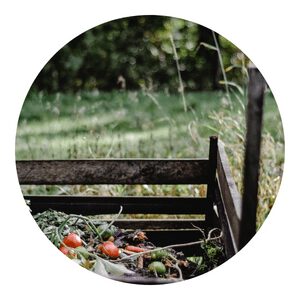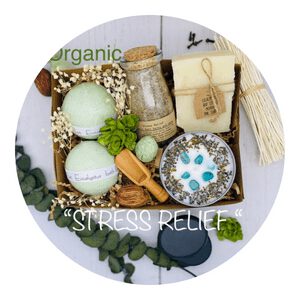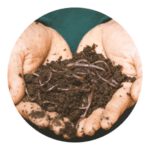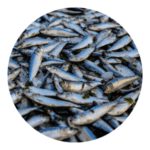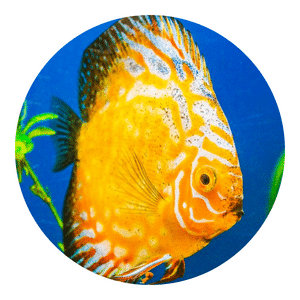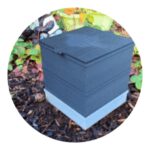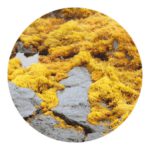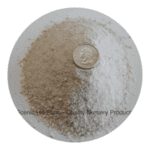Green Manure
As the weather gets warmer and gardens start to bloom, Chappy the Gardener is here to help green-thumbed enthusiasts make the most of their space.
In his latest guide, Chappy covers everything you need to know about green manure – what it is, how it benefits your plants, and how to use it in your garden.
Green manure is a type of cover crop that is grown specifically to be tilled into the soil.
Commonly used green manures include legumes like clover and alfalfa, grasses like rye and oats, and mustard greens.
Green manure crops are packed with nutrients that enrich the soil, improve drainage, and promote healthy plant growth.
Green Manure Menu
Green manure is a type of organic fertilizer that is composed of decomposing plant material.
It helps to improve soil fertility and can be used in conjunction with other fertilizers to create a balanced garden.
What is green manure?
Green manure is a term used to describe crops that are grown specifically to add nutrients and organic matter to the soil.
These crops are then tilled into the soil before they flower or set seed in order to improve the soil’s structure and fertility.
Green manure can be either annual or perennial, depending on the crop used.
Some common green manure crops include clover, alfalfa, vetch, and buckwheat.
What are the benefits of using green manure?
Green manure is a crop that is grown specifically to improve the fertility of the soil.
The plant matter decomposes, releasing nutrients into the soil which can be used by future crops.
Green manure also helps to improve the soil structure and increase its water-holding capacity.
What types of green manure are available?
Green manure is a crop grown primarily for the purpose of improving soil fertility.
Green manures are different from cover crops in that they are typically turned into the soil while still green, or shortly after flowering, to add organic matter and nutrients to the soil.
Green manures also help protect against erosion. There are many different types of green manure, each with its own unique benefits.
Some common types of green manure include clover, rye, vetch, and buckwheat.
How do you use green manure?
Green manure is a type of organic fertilizer that is made from plant material. It can be used to improve the soil quality and to help plants grow better.
Green manure is usually added to the soil before planting, but it can also be used as a mulch or compost.
There are many different types of green manure, but all of them have one thing in common: they are rich in nitrogen.
Green manure is a natural fertilizer It's made up of organic matter Such as leaves, grass clippings or straw Which helps to improve the soil's fertility By adding organic matter and nutrients Which helps to promote plant growth
Chappy The Gardener
What are the potential drawbacks of using green manure?
Green manure is a crop that is grown specifically to be turned into organic matter to improve the soil.
There are some potential drawbacks to using green manure, however.
One potential drawback is that it can take up space in the garden that could be used for other crops.
Another potential drawback is that green manure can attract pests and diseases if it is not turned into the soil soon enough.
What is green manure give example?
Green manure is a type of organic fertilizer that is made from plants that are grown specifically for the purpose of adding nutrients to the soil.
The plants are usually killed with herbicide before they are chopped and left to decompose on the soil.
Green manure is a great way to add nitrogen, phosphorus, potassium, and other minerals to the soil. It also helps to improve the texture and structure of the soil.
One of the best things about green manure is that it can be used to improve soils that are low in organic matter.
How do you make green manure?
Green manure is a type of organic fertilizer that is made from crops that are grown specifically for the purpose of being turned into compost or mulch.
The plants used for green manure are typically either legumes, which fix nitrogen from the air and make it available to other plants, or grasses, which add organic matter to the soil.
Green manure can be added to the soil in several ways: it can be tilled in before planting a new crop, it can be spread over the surface and then tilled in, or it can be added to a compost pile.
What is the best green manure crop?
Green manure crops are plants that are grown specifically to improve the soil.
They add organic matter, which helps to keep the soil healthy and fertile.
They also add nutrients to the soil, which helps to improve plant growth. Green manure crops can be used as a cover crop, which means they are planted over the winter and then tilled into the soil in the spring.
This helps to protect the soil from erosion and compaction.
There are many different types of green manure crops, but some of the most popular ones include clover, alfalfa, and buckwheat.
What are the types of green manure?
Green manure is a type of cover crop that is grown specifically to be turned into the soil to improve fertility and organic matter.
Green manures are often used as a replacement for synthetic fertilizers, and they can also help suppress weeds and pests.
There are many different types of green manure, and each has its own unique characteristics.
Some common types of green manure include clover, vetch, alfalfa, and mustard.
Why green manure is not commonly used?
Green manure is a crop that is grown specifically to improve the soil. It is tilled into the ground to add organic matter, which helps to improve the structure and fertility of the soil.
Green manure also helps to suppress weeds and pests. Despite all of these benefits, green manure is not commonly used in most agricultural settings.
One reason for this may be that it takes time for the benefits of green manure to be realized.
Another reason may be that it can be difficult to find a good use for green manure when there are so many other crops available.
How is green manure made?
Green manure is a type of organic fertilizer that helps to improve the soil quality.
It’s made up of fresh, leafy greens, such as lettuce and spinach, that are chopped and spread on the soil as fertilizer.
The leaves decompose into nutrient-rich humus, which helps to improve the fertility of the soil.
How do you add green manure?
Adding green manure to your garden or farm is a great way to improve the soil quality and fertility.
Green manure is a type of organic fertilizer that is made from plants that are grown specifically for the purpose of adding nutrients to the soil.
The plants are then chopped up and turned into the soil, where they will decompose and release their nutrients over time.
There are many different types of green manure, so it is important to choose the right one for your needs.
How long does it take to prepare green manure?
Green manure is an organic farming technique that involves planting a cover crop in order to add nutrients to the soil.
Once the cover crop has been harvested, the green manure is then turned into the soil to improve its quality.
The time it takes to prepare green manure varies depending on the type of cover crop that is used.
For example, legumes can take up to two months to break down, while grasses can be turned into the soil within a few weeks.
What are the disadvantages of green manure?
While green manure has many benefits, there are also some disadvantages to using it.
One disadvantage is that it can take up a lot of space in a garden, especially if the garden is small.
Additionally, green manure can attract pests and diseases to the garden.
It can also be difficult to work into the soil, and it may take a while for the benefits to be seen.
when to plant green manure crops?
Green manure crops are plants that are grown specifically to be turned into organic matter that can be used to improve soil health.
They are typically planted in the fall, so that they can be worked into the soil in the early spring before planting your main crops.
There are a number of factors to consider when deciding when to plant your green manure crops, including your climate and what types of plants you plan to grow.
Is green manure a organic fertilizer?
Green manure is a organic fertilizer that is made from plant material. The plant material can be fresh or dried.
Green manure is often used to improve the quality of the soil.
In conclusion, green manure is an excellent way to add nutrients to your soil and improve its texture.
It is also a great way to add organic matter to the soil, which helps to improve its ability to hold water and nutrients.
Green manure is a versatile tool that can be used in many different ways, so be sure to ask your local gardener or farmer about how you can use it in your own garden.
Thank you for reading!
Organic Fertilizer FAQ
Organic fertilizer is made from natural materials that improve the quality of your soil, such as manure, compost, and leaves. Synthetic fertilizer is made from chemicals that can harm your soil, plants, and animals. Here are four reasons to choose organic fertilizer over synthetic:
1. Organic fertilizer improves the quality of your soil. Over time, synthetic fertilizers can break down the structure of your soil, making it harder for roots to penetrate. This can lead to water runoff and soil erosion.
2. Organic fertilizer is safer for your plants. Chemicals in synthetic fertilizers can burn your plants’ roots, especially if you use too much or apply them during hot weather.
3. Organic fertilizer is safer for wildlife. Animals can be harmed by eating plants that have been treated with synthetic fertilizers.
NPK stands for nitrogen, phosphorus, and potassium, which are the three essential nutrients that all plants need to thrive. NPK fertilizer is a type of fertilizer that contains these three nutrients in varying proportions, depending on the specific formulation.
Nitrogen is responsible for promoting leaf growth, phosphorus helps with root development and flowering, and potassium aids in overall plant health and vigor.
By using NPK fertilizer, gardeners can ensure that their plants are getting the right balance of nutrients to grow healthy and strong.
Fertilizers are important for plant growth and development. They provide essential nutrients that plants need to survive and thrive. Fertilizers can be organic or inorganic, and each has its own benefits and drawbacks.
Organic fertilizers are made from natural materials like compost or manure. They release nutrients slowly, so they need to be applied more often than inorganic fertilizers. However, organic fertilizers improve soil health and help build up beneficial microbes that support plant growth.
Inorganic fertilizers are made from synthetic materials like nitrogen, phosphorus, and potassium. They release nutrients quickly, so they don’t need to be applied as often as organic fertilizers. However, inorganic fertilizers can damage soil health and harm beneficial microbes if they’re not used carefully.
When it comes to fertilizers, the three key nutrients are nitrogen (N), phosphorus (P) and potassium (K). These are typically represented by the NPK value on the fertilizer package. For example, a 10-10-10 fertilizer has an NPK value of 10-10-10 and contains 10% nitrogen, 10% phosphorus and 10% potassium.
So, are higher NPK amounts better? It depends.
If your soil is already high in one or more of these nutrients, adding more of that nutrient isn’t going to help your plants. In fact, it could actually do more harm than good.
For example, if your soil is high in phosphorus and you add a fertilizer with a high phosphorus content, you could end up with an imbalance that could hurt your plants.
Organic fertilizer is made from natural materials and helps to improve the quality of your soil while providing essential nutrients for your plants.
You may need to add organic fertilizer to your garden if you notice that your plants are not growing as well as they should, or if the leaves are yellowing or falling off.
If you are unsure whether your plants need fertilizer, it is best to consult with a gardening expert. They will be able to help you determine which type of fertilizer is best for your garden, and how often you should apply it.
Organic fertilizer is a great way to add nutrients to your soil, but you may be wondering how long it will last. Here is a general guide to the shelf life of organic fertilizer:
Composted manure – 1 to 2 years
Uncomposted manure – 6 months to 1 year
Poultry manure – 6 months
Cottonseed meal – 2 to 3 years
Alfalfa meal – 2 to 3 years
Bone meal – 1 to 2 years
Seaweed/kelp meal – 1 year
As you can see, there is a wide range of shelf life for different types of organic fertilizer. In general, composted manure and cottonseed meal will last the longest in your soil, while un composted manure and poultry manure will break down more quickly. Bone meal and alfalfa meal are somewhere in the middle.
If you want your flowers to stay healthy and vibrant, you should fertilize them regularly. But how often should you fertilize them?
It depends on the type of fertilizer you’re using. If you’re using an organic fertilizer, you should fertilize your flowers every two weeks. If you’re using a chemical fertilizer, you can fertilize them every week.
Either way, it’s important not to over-fertilize your flowers. too much fertilizer can burn their roots and damage their leaves. So, be sure to follow the directions on your fertilizer label carefully.
It is generally recommended to fertilize vegetables once a week. However, some vegetables may need to be fertilized more or less frequently depending on the type of vegetable and the specific growing conditions.
For example, leafy greens may need to be fertilized more often than root vegetables. In general, it is best to err on the side of too little fertilizer rather than too much. Over-fertilizing can lead to nutrient burn, which can damage plants.
Click To Grow
Helps Us Grow – Share If You Like





